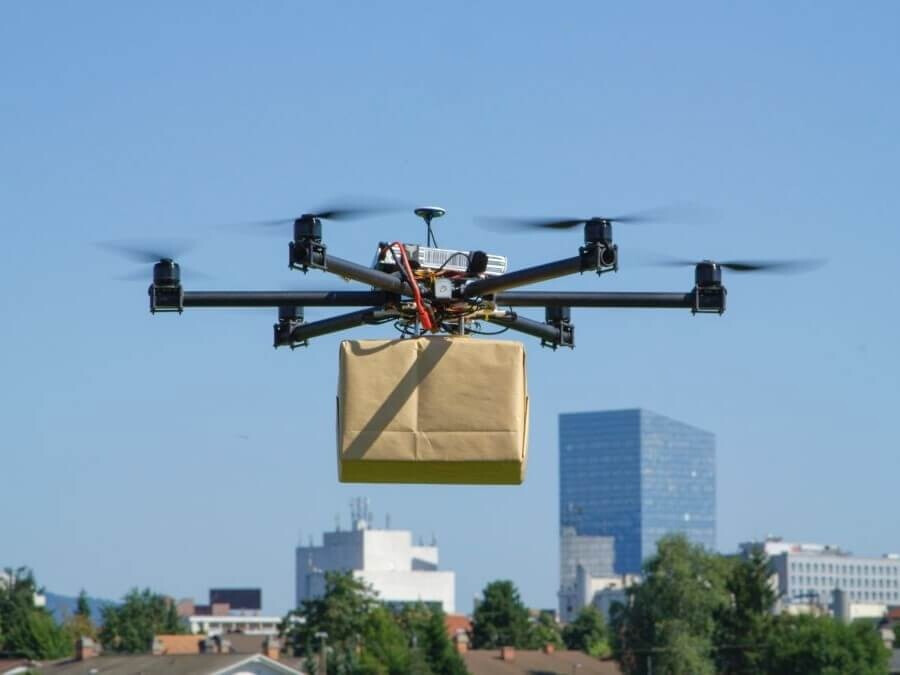
MANILA, Philippines – Grab, a leading super app company in Southeast Asia, has ushered in a new era of logistics innovation by commencing a drone delivery pilot operation in the National Capital Region (NCR) of the Philippines. In Metro Manila, notorious for its chronic traffic congestion, a drone-based delivery system is garnering attention as a groundbreaking alternative to resolve delivery delays and maximize the efficiency of complex urban logistics. This pilot operation is being pursued through close collaboration between Grab Philippines, Megaworld Corp., the Philippine Department of Transportation (DOTr), and the Department of Information and Communications Technology (DICT), and is expected to present a blueprint for future urban logistics.
Drone Delivery: A Solution Beyond Traffic Congestion
The Philippines, especially Metro Manila, faces significant challenges in logistics movement due to extreme traffic congestion, resulting in enormous time and cost expenditures. In this environment, Grab's drone delivery pilot operation is an innovative attempt to overcome the limitations of existing motorcycle and vehicle-based delivery systems. Grab stated in a press release that it will conduct a delivery pilot study using unmanned aerial vehicles (UAVs) between two Megaworld-owned real estate properties.
This drone delivery system adopts a hybrid delivery model. In this model, existing Grab riders pick up items at designated drone landing zones and ultimately deliver them to the customer, while drones handle the critical transport segment between the two points. This strategy leverages the speed and efficiency of drones while ensuring the stability and scalability of the service, as experienced riders handle deliveries to final destinations that are difficult for drones to access.
Ronald Roda, Country Head of Grab Philippines, emphasized, "This pilot is an opportunity for us to learn and understand how drone delivery can work in the Philippine context, from dense urban areas to underserved communities." This suggests that the project aims to develop customized logistics solutions that consider the geographical and social characteristics of the Philippines.
Government and Corporate Collaboration for Innovation
Grab Philippines' drone delivery project is notable for being driven by active cooperation with government agencies. Grab, Megaworld, the Department of Transportation (DOTr), and the Department of Information and Communications Technology (DICT) have signed a Memorandum of Understanding (MOU) for this endeavor.
The Department of Transportation (DOTr) will provide expertise in aviation regulations, safety, and transportation infrastructure development, playing a crucial role in establishing the necessary legal and institutional framework for drone operations. Specifically, setting drone flight paths, integrating with air traffic management systems, and ensuring compliance with safety regulations would be impossible without the DOTr's close collaboration.
The Department of Information and Communications Technology (DICT) is responsible for the communication infrastructure and data security, which are central to the drone delivery system. Smooth drone communication, real-time location tracking, and delivery data management would be difficult to operate stably without the DICT's technical support. Furthermore, preparing for cybersecurity threats arising from advancements in drone technology is also a significant role for the DICT.
Megaworld Corporation, a major real estate developer in the Philippines, will provide drone landing sites and logistics hub spaces for this pilot operation. Megaworld's extensive network of commercial and residential complexes will serve as a practical testbed for the drone delivery system, providing an important indicator for gauging future service expansion possibilities.
The Potential of Future Urban Logistics
Grab's drone delivery pilot operation presents various possibilities for future urban logistics.
First, improved accessibility: Drones can efficiently access areas with inadequate road infrastructure or severe traffic congestion, enabling service provision to residents in areas previously underserved by traditional delivery services. This is a particularly significant advantage given the Philippines' geographical characteristic of having many islands.
Second, reduced environmental impact: The use of electric drones can reduce carbon emissions and minimize noise pollution, lessening negative impacts on the urban environment. This will also have a positive effect in terms of sustainable urban development.
Third, increased cost efficiency: In the long term, once the drone delivery system stabilizes, labor and fuel costs can be reduced, lowering delivery expenses. This enhances corporate operational efficiency and ultimately forms the basis for providing more affordable delivery services to consumers.
Fourth, potential for disaster relief utilization: Drones can be used to swiftly deliver emergency relief supplies to isolated areas during disasters. Considering that the Philippines is a country frequently affected by natural disasters, this technology can also contribute to strengthening social safety nets.
Grab Philippines' drone delivery pilot operation is expected to explore innovative solutions to the Philippines' unique logistics problems and contribute to improving the quality of life in future cities. The valuable data and experience gained from this pilot study will serve as an important stepping stone to accelerate logistics innovation across Southeast Asia, not just in the Philippines. Attention is focused on the changes in future logistics that Grab and its partners' collaboration will bring.
[Copyright (c) Global Economic Times. All Rights Reserved.]




























